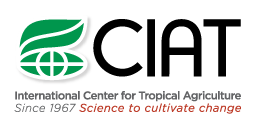A global movement for healthier people and a healthier planet
The world has never produced or consumed so much food.
But gains in productivity have come at an enormous environmental cost. Each year, billions of hectares of agricultural land are lost to degradation, much of it due to industrial farming. Agro-chemicals have polluted rivers and aquifers. Agriculture and land use change account for around one-third of all greenhouse gas emissions. In the last century alone, we’ve lost three-quarters of the world’s agricultural biodiversity. If that wasn’t bad enough, roughly one-third of all food produced goes to waste.
At the same time, food consumption patterns are changing. The rising middle class is demanding more meat; across the board, processed foods are becoming more popular. Many parts of the world are waking up to a perverse “triple-burden”: the co-existence of chronic hunger, malnutrition and over-nutrition. In the world’s rapidly growing urban areas, these conditions often exist side by side. This is especially the case in the cities of Latin America – already the world’s most urbanized region, and where over 90% of people will live in cities by 2050.
%
of people will live in cities by 2050 in Latin America – already the world’s most urbanized region.
The notion of sustainable food systems attempts to tackle these and other issues holistically, prioritizing the need for nutritious diets made up of a range of wholesome, accessible and affordable ingredients, produced with a minimal environmental footprint. Of the 169 targets that make up the United Nations’ Sustainable Development Goals, over 60 relate in some way to the food system, meaning some of the world’s most powerful people back the idea that human progress, good diets and environmental integrity depend on each other.
CIAT is channeling its research in this area through its FoodLens initiative, which aims to generate new knowledge on dynamic food systems in cities and their repercussions on health, the environment and social equity. The initiative brought the EATxCali forum to CIAT headquarters in Colombia in October 2015. The event sought to provide a vision of what sustainable food systems could – and should – look like, with a specific focus on Latin America and the Caribbean. Organized in conjunction with Norway’s EAT Initiative, it featured international experts on nutritional and dietary issues and resulted in an upcoming white paper, Toward diverse, resilient, sustainable and nutritious food systems in Latin America and the Caribbean.
EatXCali in the media
El Espectador – 4 November 2015 – Gaseosas en Colombia deben tener un impuesto del 20%
Whether regionally or globally, sustainable food systems require us to think more broadly about how our food is produced and accessed. They require, for example, the conservation of plants in genebanks, to enable crop breeders to respond to challenges such as climate change and to improve the nutritional value of staple crops. They require, of course, sound agronomic practices and recognition of the importance of ecosystems upon which so much food production depends. They require the development of business models that give farmers and the environment a better deal. They require work to minimize post-harvest losses and urban food waste. They require education programs and policies to promote healthy eating and recreation. They will require new technologies and new investments.
All this will require a far better understanding of the dynamics of food systems in different parts of the world, the ways they are changing and the ways they can be changed. CIAT’s work on these issues will contribute to what is becoming a global movement for healthier people and a healthier planet.
Sustainable food systems require:
- Sound agronomic practices and recognition of the importance of ecosystems
- The conservation of crop plants in genebanks
- The development of business models that give farmers and the environment a better deal
- Minimizing post-harvest losses and urban food waste
- Education programs and policies to promote healthy eating and recreation
- New technologies and new investments
















